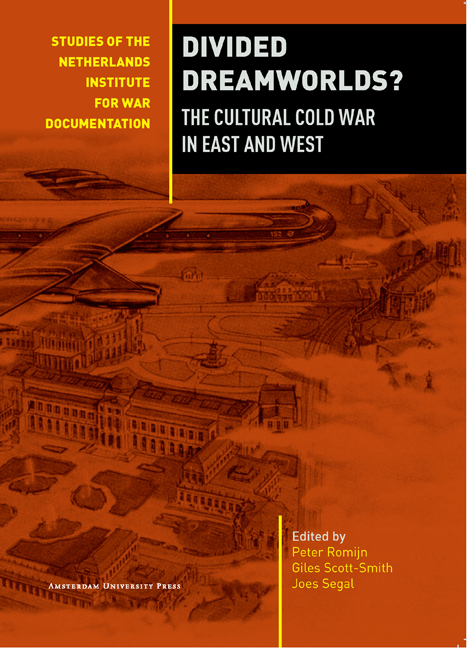Introduction: — Divided Dreamworlds? The Cultural Cold War in East and West
Published online by Cambridge University Press: 02 February 2021
Summary
The Cold War, which started in the aftermath of World War ii and ended with the fall of the Berlin Wall in November 1989 and the subsequent dissolution of the Soviet Union in December 1991, was more than a confrontation of economic systems and political convictions backed with military power and technological rivalries: it was a clash between cultures and ideologies. Both the communist East and the capitalist West cultivated their interpretations of the world, including the promise of a definitive break with the human tragedies of the past and exclusive access to universal happiness, social harmony, equality and freedom in the future. However, these collective interpretations were constantly challenged, not only by the opposing camp but also from within. Despite the evident overall differences between political systems and everyday experiences, both power blocs had a lot in common and were less secluded than one might think. The ‘dreamworlds’ of East and West were never completely divided.
We all have dreams, and our dreams inspire us to organise our lives. It is through stories, beliefs and fantasies that we as individuals give meaning to the world around us, creating ‘dreamworlds’ to help us translate the apparent chaos of everyday life into a meaningful and purposeful order. However, unlike their nocturnal counterparts, these ‘daydreams’ can shape our everyday life. Daydreams are limited and directed by our environments, as we form our thoughts, hopes, fears and desires in relation to what we experience as living reality. At the same time, our daydreams motivate our responses and actions, and therefore have tangible real-world consequences. Individual lives were shaped by the realities of Cold War cultures and societies in East and West, but these cultures and societies were no less shaped by the thoughts, feelings and actions of their inhabitants.
The concept of ‘dreamworlds’ is illuminating in the context of Cold War cultures as it suggests that power is never uncontested or self-evident. Capitalism and communism can be seen as collective dream projects, as thought systems or ideologies supported by ‘dream communities’ which share a common interpretation of the world.
- Type
- Chapter
- Information
- Divided Dreamworlds?The Cultural Cold War in East and West, pp. 1 - 10Publisher: Amsterdam University PressPrint publication year: 2012

